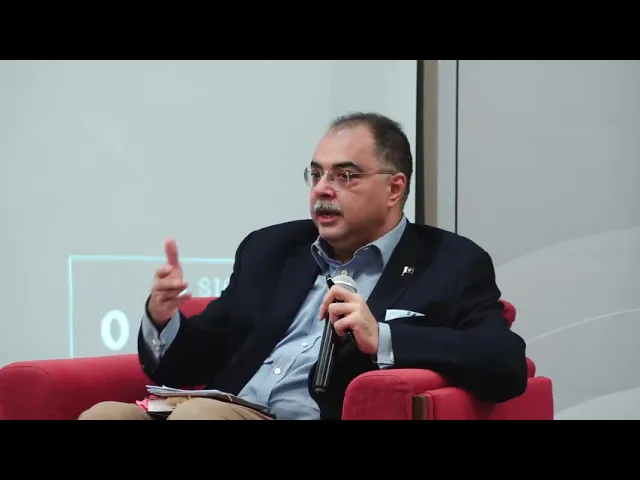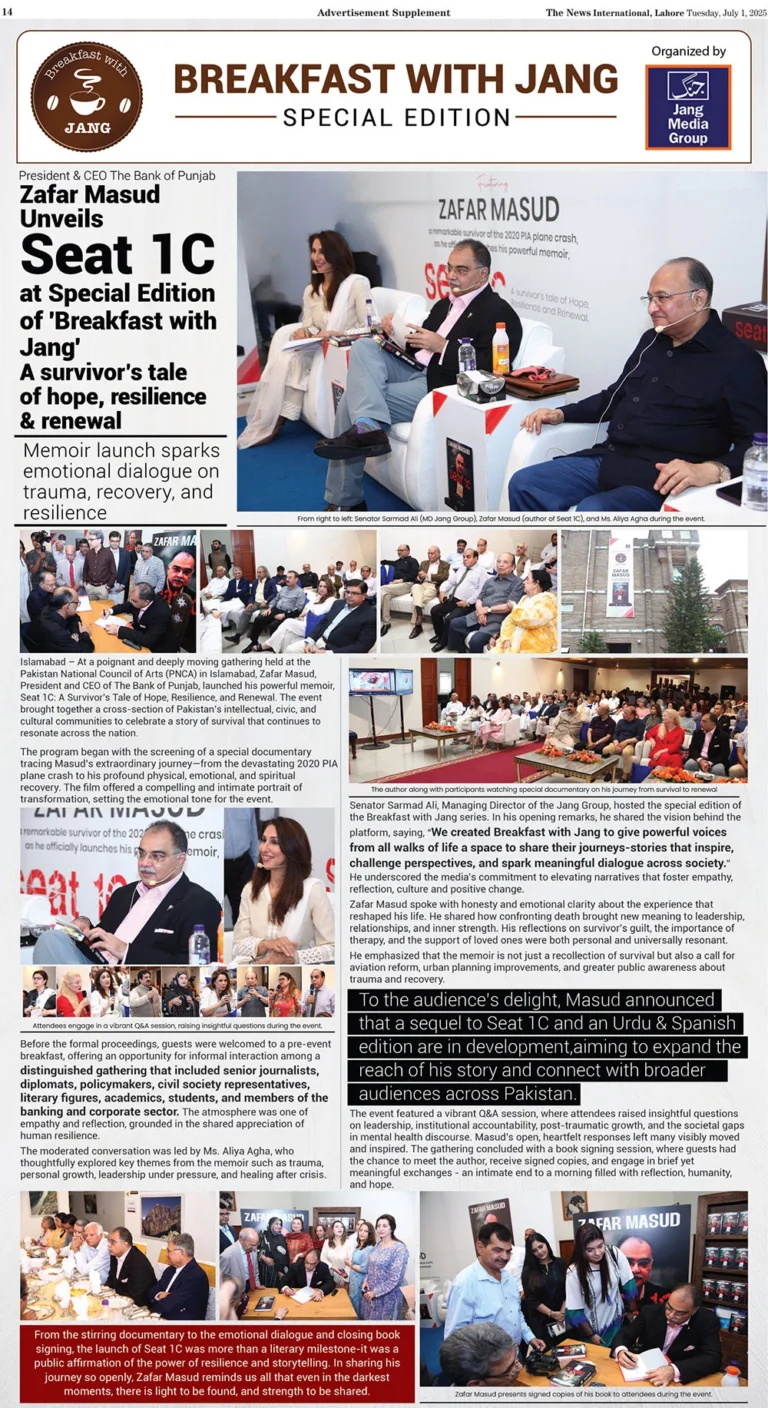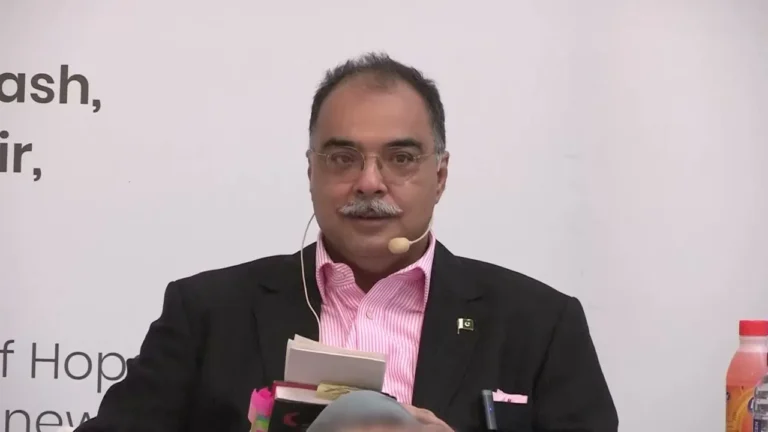
Zafar Masud Margalla Tribune – Cover Story
In this powerful cover story, crash survivor and banker Zafar Masud opens up about the 30 seconds before impact, the

In this powerful cover story, crash survivor and banker Zafar Masud opens up about the 30 seconds before impact, the

SSGC launched its new speaker series Pinnacle-Talks with a powerful session featuring Zafar Masud, President BOP and survivor of PIA

President & CEO The Bank of Punjab Zafar Masud Unveils Seat 1C at Special Edition of ‘Breakfast with Jang’

In this powerful episode of MT Out Loud, a podcast by Margalla Tribune, host Aliya Agha sits down with Zafar

After Zafar Masud in Flight PK8303, Viswashkumar Ramesh, 40, the sole survivor of Air India Flight 171, is among the
